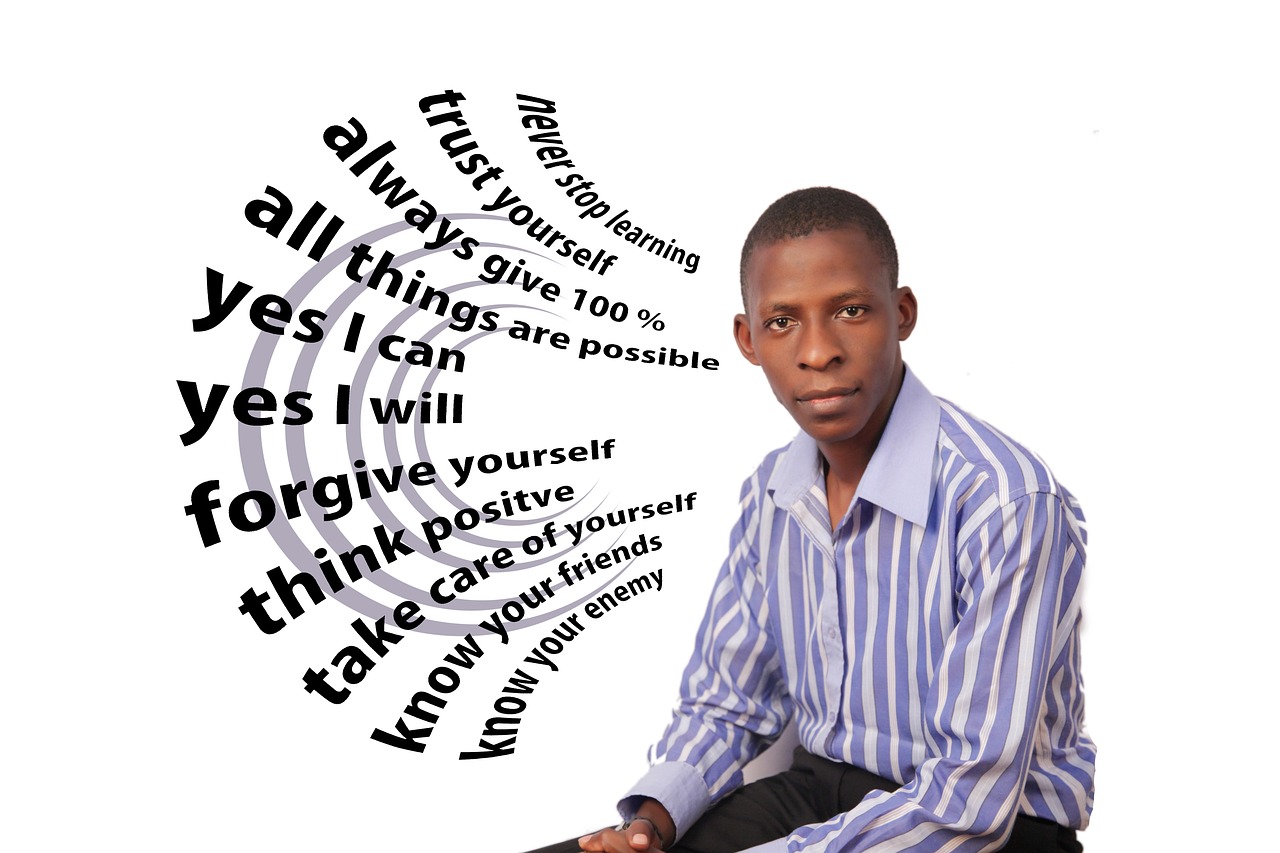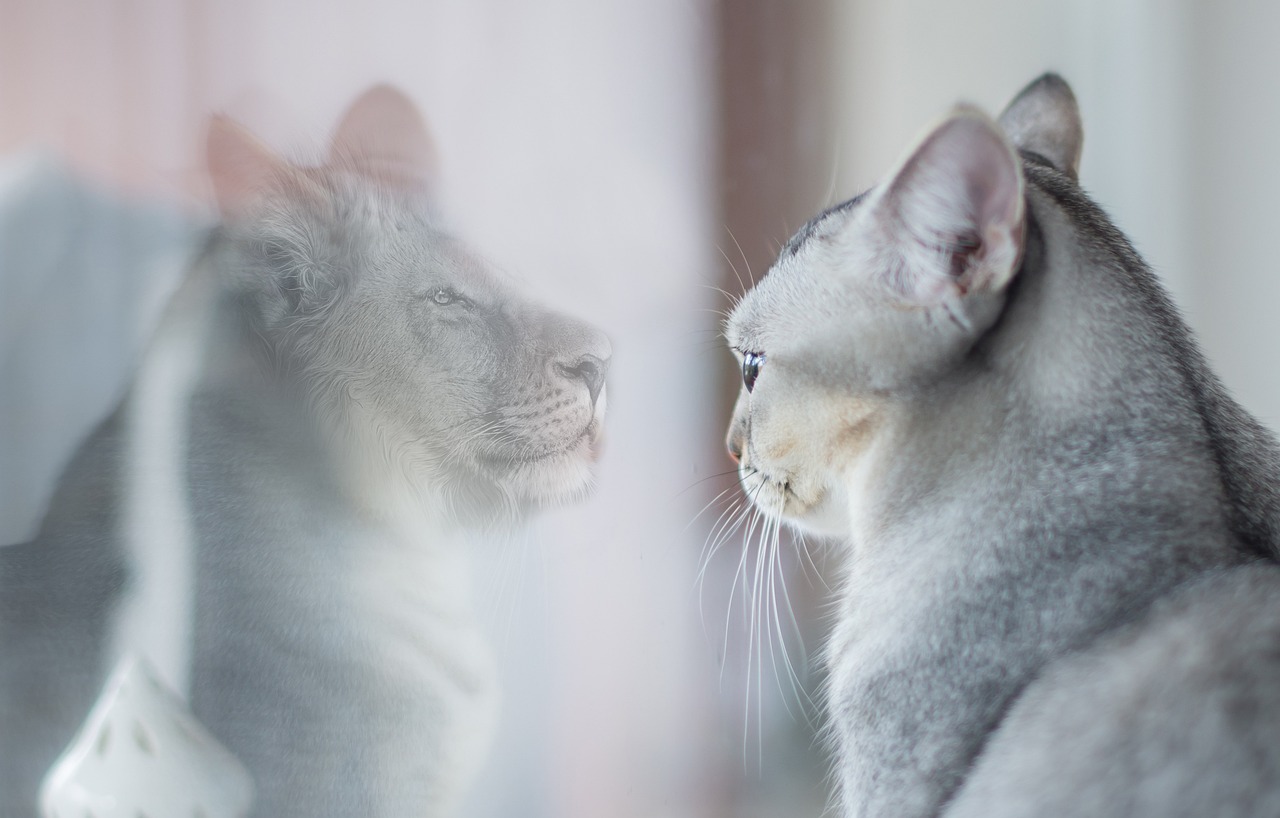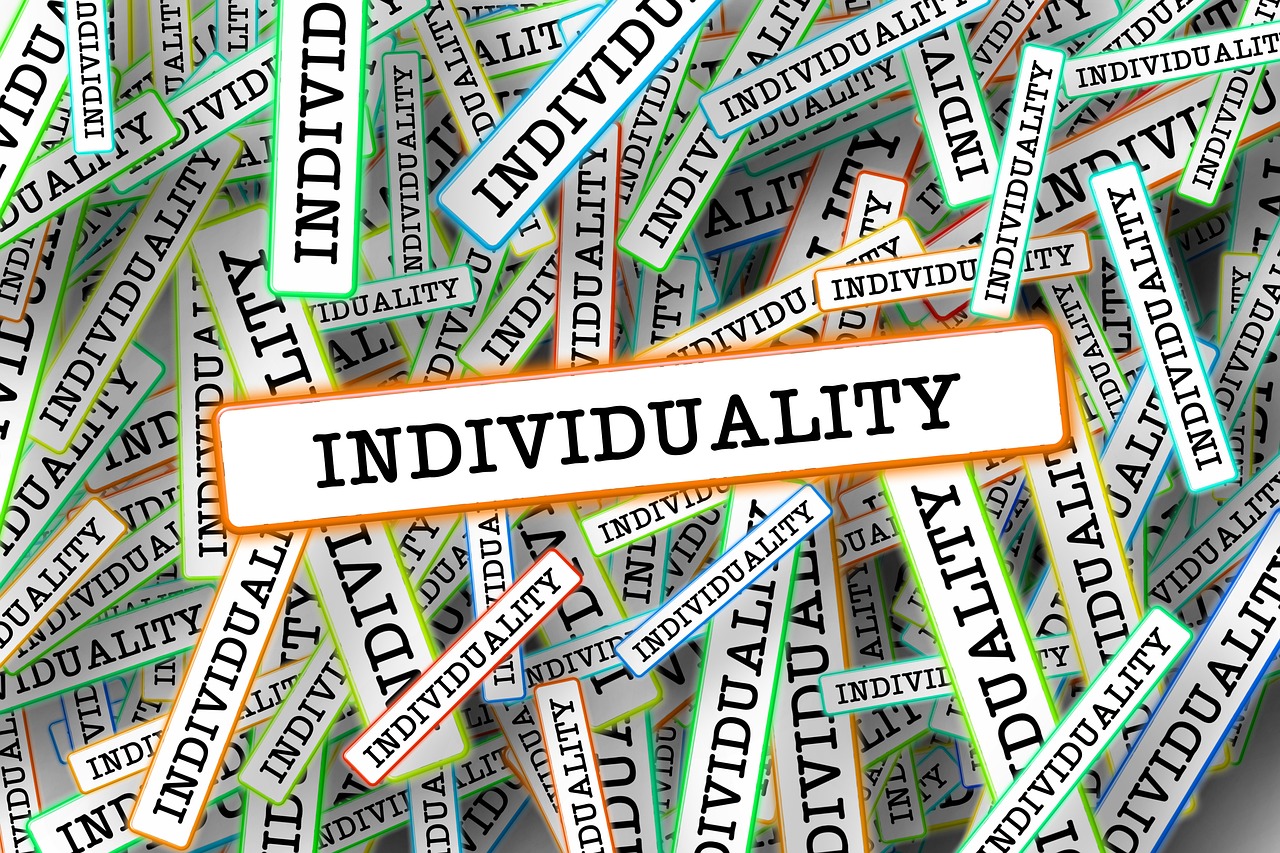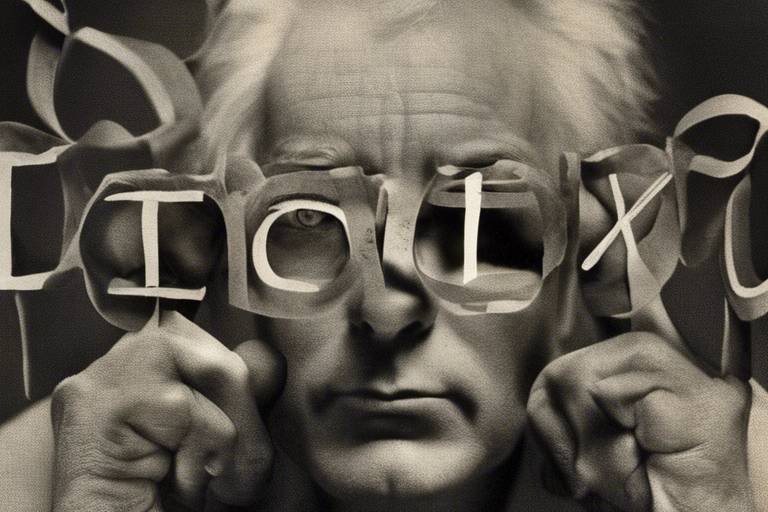The Egomaniac: A Philosophical Discourse
This article delves into the concept of egomania, exploring its philosophical implications, psychological roots, and societal impacts, while providing insights into how it shapes human behavior and interpersonal relationships. In a world where self-promotion often overshadows genuine connection, understanding egomania can be a game-changer for personal growth and social dynamics. So, what exactly is egomania, and why should we care? Let’s dive into the depths of this intriguing topic.
Understanding the term egomania is essential for this discourse. It encompasses excessive self-focus and the neglect of others, leading to various psychological and social consequences that can affect personal and professional relationships. Imagine a person so engrossed in their own thoughts and achievements that they fail to notice the struggles of those around them. This self-centeredness not only alienates friends and family but can also create a toxic environment in workplaces and communities. Essentially, egomania is like a double-edged sword; it can drive ambition but also foster isolation.
The evolution of egomania through history reveals its philosophical roots. By examining influential thinkers, we can grasp how perceptions of self-importance have changed and influenced societal norms and behaviors throughout different eras. From ancient philosophers to modern psychologists, the discourse around ego and self has been rich and varied. The way we view ourselves has a profound impact on how we interact with others, shaping societal constructs over time.
Nietzsche's philosophy offers a profound examination of the self and ego. His ideas about the will to power and individualism contribute significantly to understanding egomania and its implications for personal identity and morality. Nietzsche posited that the drive for power is a fundamental human instinct. This notion challenges us to consider whether our own pursuits are genuinely fulfilling or merely expressions of an inflated ego. Are we striving for greatness, or are we simply feeding our egos?
The concept of the Übermensch challenges traditional morality. This idea encourages individuals to transcend societal norms, which can lead to both constructive and destructive forms of egomania in pursuit of personal greatness. While striving to become the best version of ourselves is admirable, it’s crucial to remain grounded and aware of the impact our actions have on those around us. The journey toward self-actualization should not come at the expense of empathy and community.
Despite Nietzsche's influence, many philosophers criticize his ideas. They argue that an unchecked ego can lead to ethical dilemmas, highlighting the potential dangers of egomania in both personal and societal contexts. When individuals prioritize their ambitions over ethical considerations, the consequences can be dire. This critique serves as a reminder that while self-improvement is essential, it should never come at the cost of our moral compass.
Contemporary psychology provides valuable insights into the nature of egomania. Understanding its psychological underpinnings helps clarify how egomania manifests in individuals and affects their relationships and mental health. For instance, traits associated with egomania can often be linked to deeper psychological issues such as insecurity or fear of inadequacy. By addressing these root causes, individuals can work towards healthier self-perceptions and improved interpersonal dynamics.
Egomania significantly influences interpersonal dynamics. This section explores how self-centered behavior can strain friendships, romantic relationships, and workplace interactions, often leading to conflict and isolation. When one party in a relationship is overly focused on their own needs and desires, it creates an imbalance that can lead to resentment and emotional distance. The challenge lies in recognizing these patterns and striving for a more balanced approach to relationships.
Effective communication is crucial for healthy relationships. Egomania can hinder open dialogue, resulting in misunderstandings and emotional distance between individuals, which can further exacerbate relational issues. For example, when one partner constantly seeks validation and attention, the other may feel neglected or unappreciated. This breakdown in communication can spiral into larger conflicts, making it essential to foster an environment where both parties feel heard and valued.
Addressing egomania in relationships requires specific strategies. Techniques for fostering empathy and understanding can help individuals navigate conflicts and build healthier connections despite egocentric tendencies. Here are a few strategies:
- Active Listening: Make a conscious effort to listen to your partner’s thoughts and feelings without interruption.
- Empathy Exercises: Engage in activities that encourage you to see things from the other person’s perspective.
- Open Dialogue: Create a safe space for honest conversations about feelings and expectations.
Different cultures perceive and respond to egomania in unique ways. This section examines how cultural values shape the expression of ego and self-importance, influencing social interactions and community dynamics. In some cultures, individual achievements are celebrated, while in others, collective well-being is prioritized. This cultural lens can significantly impact how egomania is viewed and addressed within various societies.
The tension between individualism and collectivism plays a crucial role in understanding egomania. This discussion explores how cultural orientations impact the balance between self-interest and communal responsibility. In individualistic societies, egomania may be more readily accepted, whereas collectivist cultures may view it as detrimental to group harmony. Understanding these cultural nuances is vital for fostering mutual respect and cooperation.
In the age of social media, egomania is often amplified. This section analyzes how platforms promote self-promotion and the implications of this cultural shift on individual behavior and societal values. With the rise of influencers and curated online identities, the line between healthy self-expression and egomania can become blurred. It’s essential to navigate this landscape mindfully, recognizing the potential impacts on mental health and interpersonal relationships.
What is egomania?
Egomania refers to an excessive focus on oneself, often at the expense of others, leading to various social and psychological consequences.
How does egomania affect relationships?
Egomania can strain relationships by creating an imbalance, leading to misunderstandings, emotional distance, and conflict.
Can egomania be addressed?
Yes, egomania can be addressed through effective communication, empathy exercises, and a willingness to understand others' perspectives.

[Defining Egomania]
Understanding the term egomania is essential for this discourse. At its core, egomania refers to an excessive preoccupation with oneself, often to the detriment of others. This self-centeredness can manifest in various ways, affecting not only personal relationships but also professional dynamics. It’s like being the star of your own movie, where everything revolves around your desires, feelings, and needs, while the supporting cast is left feeling neglected or undervalued.
Egomania can lead to a myriad of psychological and social consequences. Individuals who exhibit egomaniacal traits often struggle with empathy, making it challenging for them to connect with others on a deeper level. They may find themselves in a cycle of loneliness, as their relationships become strained under the weight of their self-importance. The consequences of egomania can ripple through various aspects of life, including:
- Personal Relationships: Friends and family may feel sidelined or unappreciated.
- Workplace Dynamics: Colleagues might experience frustration or resentment due to a lack of collaboration.
- Mental Health: The individual may suffer from anxiety or depression stemming from isolation.
Philosophically, egomania raises intriguing questions about the nature of the self. Is it inherently wrong to prioritize oneself? Or is there a balance to be struck between self-care and social responsibility? These questions often lead to deeper explorations of individual identity and morality. For instance, one might ponder whether a healthy sense of self-worth could be misconstrued as egomania. The line between confidence and arrogance can be thin, and it’s crucial to navigate these waters with care.
In our quest to understand egomania, we must also consider its impact on societal norms. In a world increasingly focused on individual achievement and self-promotion, the traits associated with egomania might not only be tolerated but even celebrated. This cultural shift prompts us to reflect on how we define success and the role of community in our lives. Are we fostering environments that encourage collaboration and empathy, or are we inadvertently nurturing a culture of egocentrism?
Ultimately, recognizing and defining egomania is the first step toward addressing its implications. By understanding the nuances of self-centered behavior, we can better navigate our relationships and contribute to a more balanced society. So, as we delve deeper into this discourse, let’s keep in mind the importance of fostering connections that go beyond the self, enriching our lives and the lives of those around us.

[Historical Perspectives]
Understanding the concept of egomania requires us to look back through history, where the roots of self-importance and individualism have been deeply intertwined with philosophical thought. Throughout the ages, various thinkers have examined the nature of the self, often reflecting the societal values of their time. From ancient philosophers to modern theorists, the evolution of egomania reveals much about human behavior and our relationship with the world around us.
In ancient Greece, philosophers like Socrates and Plato laid the groundwork for understanding the self. Socrates famously said, "Know thyself," urging individuals to look inward and understand their own motivations and desires. This introspection, however, could easily tip into egomania if one becomes overly focused on self, neglecting the community and the greater good. Plato's Allegory of the Cave also illustrates the journey of self-discovery, suggesting that enlightenment often leads to a greater sense of self, but also warns of the isolation that can come from that journey.
Moving into the Renaissance, the rise of humanism brought a renewed focus on individual potential and achievement. Thinkers such as Renaissance Man Leonardo da Vinci epitomized this shift, showcasing how personal talent and creativity could lead to greatness. However, this newfound individualism also sowed the seeds for egomania, as the glorification of the self began to overshadow communal values. The tension between self-importance and social responsibility became a prominent theme in philosophical discourse.
Fast forward to the 19th century, and we encounter Friedrich Nietzsche, whose ideas profoundly impacted the understanding of egomania. Nietzsche's concept of the Übermensch challenges traditional morality, advocating for individuals to transcend societal norms in pursuit of personal greatness. While this notion encourages self-actualization, it also raises ethical questions about the implications of unchecked egoism. Nietzsche's philosophy suggests that the drive for power and individuality can lead to both remarkable achievements and dangerous narcissism.
| Philosopher | Key Ideas | Impact on Egomania |
|---|---|---|
| Socrates | Self-knowledge and introspection | Encouraged self-awareness but could lead to self-obsession |
| Plato | Journey of self-discovery | Promoted enlightenment but warned of isolation |
| Nietzsche | Will to power and the Übermensch | Encouraged personal greatness with ethical concerns |
Despite Nietzsche's immense influence, many philosophers have critiqued his ideas. They argue that an unchecked ego can lead to ethical dilemmas, suggesting that egomania can manifest as a destructive force in both personal relationships and societal structures. The historical perspectives on egomania reveal a complex interplay between self and society, highlighting the ongoing struggle to balance individual desires with communal responsibilities.
In summary, the historical examination of egomania illustrates how philosophical thought has shaped our understanding of self-importance. From the introspective inquiries of ancient philosophers to the radical ideas of Nietzsche, the evolution of egomania reflects our ongoing quest for identity and meaning in a world that often prioritizes the individual over the collective.

[Friedrich Nietzsche's Influence]
Friedrich Nietzsche, a towering figure in philosophy, offers a compelling lens through which we can examine the concept of egomania. His exploration of the self and the ego challenges traditional notions of morality and identity. Nietzsche's ideas about the will to power and individualism are particularly significant in understanding how egomania manifests in contemporary society. He posited that the drive for self-assertion is a fundamental aspect of human nature, suggesting that individuals are inherently motivated to enhance their own power and influence.
At the core of Nietzsche's philosophy is the notion that individuals should strive for greatness, transcending the limitations imposed by societal norms. This pursuit can lead to what he termed the Übermensch, or "Overman," a figure who embodies the ideal of self-overcoming and personal excellence. However, this ideal can also give rise to egomania when individuals become consumed by their quest for superiority, neglecting the needs and perspectives of others.
Nietzsche’s emphasis on the individual's role in shaping their destiny raises important questions about the balance between self-interest and ethical responsibility. While he encourages personal empowerment, critics argue that this unchecked focus on the self can lead to ethical dilemmas. For instance, when one's drive for self-importance overrides compassion and empathy, it can result in harmful behaviors that affect interpersonal relationships and societal cohesion.
Moreover, Nietzsche's philosophy invites us to reflect on the implications of egomania in our own lives. Are we, like the Übermensch, striving to become our best selves, or are we merely indulging in a self-centered existence that alienates us from others? This introspection is crucial in navigating the complexities of human behavior and the impact of egomania on our interactions.
In summary, Nietzsche's influence on the understanding of egomania is profound. His ideas compel us to consider the fine line between healthy self-assertion and destructive self-absorption. As we explore the ramifications of egomania in our personal and societal contexts, Nietzsche's work serves as both a guide and a cautionary tale about the potential perils of an unchecked ego.
- What is egomania? Egomania refers to an excessive focus on oneself, often leading to neglect of others and detrimental effects on relationships.
- How does Nietzsche's philosophy relate to egomania? Nietzsche's ideas about the will to power and the Übermensch highlight the potential for self-empowerment but also warn against the dangers of unchecked ego.
- Can egomania be harmful in relationships? Yes, egomania can create barriers to effective communication and empathy, leading to conflicts and isolation in personal and professional relationships.

will to power
This article delves into the concept of egomania, exploring its philosophical implications, psychological roots, and societal impacts, while providing insights into how it shapes human behavior and interpersonal relationships.
Understanding the term egomania is essential for this discourse. It encompasses excessive self-focus and the neglect of others, leading to various psychological and social consequences that can affect personal and professional relationships.
The evolution of egomania through history reveals its philosophical roots. By examining influential thinkers, we can grasp how perceptions of self-importance have changed and influenced societal norms and behaviors throughout different eras.
Nietzsche's philosophy offers a profound examination of the self and ego. His ideas about the and individualism contribute significantly to understanding egomania and its implications for personal identity and morality.
The concept of the Übermensch challenges traditional morality. This idea encourages individuals to transcend societal norms, which can lead to both constructive and destructive forms of egomania in pursuit of personal greatness.
Despite Nietzsche's influence, many philosophers criticize his ideas. They argue that an unchecked ego can lead to ethical dilemmas, highlighting the potential dangers of egomania in both personal and societal contexts.
Contemporary psychology provides valuable insights into the nature of egomania. Understanding its psychological underpinnings helps clarify how egomania manifests in individuals and affects their relationships and mental health.
Egomania significantly influences interpersonal dynamics. This section explores how self-centered behavior can strain friendships, romantic relationships, and workplace interactions, often leading to conflict and isolation.
Effective communication is crucial for healthy relationships. Egomania can hinder open dialogue, resulting in misunderstandings and emotional distance between individuals, which can further exacerbate relational issues.
Addressing egomania in relationships requires specific strategies. This section discusses techniques for fostering empathy and understanding, helping individuals navigate conflicts and build healthier connections despite egocentric tendencies.
Different cultures perceive and respond to egomania in unique ways. This section examines how cultural values shape the expression of ego and self-importance, influencing social interactions and community dynamics.
The tension between individualism and collectivism plays a crucial role in understanding egomania. This discussion explores how cultural orientations impact the balance between self-interest and communal responsibility.
In the age of social media, egomania is often amplified. This section analyzes how platforms promote self-promotion and the implications of this cultural shift on individual behavior and societal values.
The is a central tenet of Nietzsche's philosophy, encapsulating the fundamental drive that motivates human behavior. It goes beyond mere survival or reproduction; instead, it embodies a profound desire for growth, mastery, and the assertion of one's influence over the world. Imagine a river that carves its path through the landscape, relentlessly pushing forward despite obstacles. This metaphor illustrates how the will to power propels individuals to overcome challenges, assert their identity, and strive for greatness.
In the context of egomania, the will to power can manifest in various ways. On one hand, it can inspire individuals to achieve extraordinary feats, pushing the boundaries of what is possible. On the other hand, when unchecked, it can lead to a self-centered worldview, where the needs and feelings of others are overlooked. This duality raises important questions: How do we balance our drive for personal achievement with our responsibilities to others? Can the pursuit of power coexist with empathy and compassion?
Ultimately, understanding the will to power is crucial for grappling with egomania. It challenges us to reflect on our motivations and the impact of our actions on those around us. By recognizing this drive within ourselves, we can strive for a more balanced approach—one that honors our ambitions while fostering meaningful connections with others.
- What is egomania? Egomania refers to an excessive focus on oneself, often leading to a disregard for others' needs and feelings.
- How does the will to power relate to egomania? The will to power is a drive for personal achievement and influence, which can contribute to egomania if not balanced with empathy.
- Can egomania be harmful to relationships? Yes, egomania can strain relationships by creating misunderstandings and emotional distance.
- How can individuals manage egomania in their lives? Developing empathy, practicing active listening, and fostering open communication can help manage egomania.

and individualism contribute significantly to understanding egomania and its implications for personal identity and morality.
Understanding the term egomania is essential for this discourse. It encompasses excessive self-focus and the neglect of others, leading to various psychological and social consequences that can affect personal and professional relationships.
The evolution of egomania through history reveals its philosophical roots. By examining influential thinkers, we can grasp how perceptions of self-importance have changed and influenced societal norms and behaviors throughout different eras.
Nietzsche's philosophy offers a profound examination of the self and ego. His ideas about the will to power and individualism contribute significantly to understanding egomania and its implications for personal identity and morality.
The concept of the Übermensch challenges traditional morality. This idea encourages individuals to transcend societal norms, which can lead to both constructive and destructive forms of egomania in pursuit of personal greatness.
Despite Nietzsche's influence, many philosophers criticize his ideas. They argue that an unchecked ego can lead to ethical dilemmas, highlighting the potential dangers of egomania in both personal and societal contexts.
Contemporary psychology provides valuable insights into the nature of egomania. Understanding its psychological underpinnings helps clarify how egomania manifests in individuals and affects their relationships and mental health.
Egomania significantly influences interpersonal dynamics. This section explores how self-centered behavior can strain friendships, romantic relationships, and workplace interactions, often leading to conflict and isolation.
Effective communication is crucial for healthy relationships. Egomania can hinder open dialogue, resulting in misunderstandings and emotional distance between individuals, which can further exacerbate relational issues.
Addressing egomania in relationships requires specific strategies. This section discusses techniques for fostering empathy and understanding, helping individuals navigate conflicts and build healthier connections despite egocentric tendencies.
Different cultures perceive and respond to egomania in unique ways. This section examines how cultural values shape the expression of ego and self-importance, influencing social interactions and community dynamics.
The tension between individualism and collectivism plays a crucial role in understanding egomania. This discussion explores how cultural orientations impact the balance between self-interest and communal responsibility.
In the age of social media, egomania is often amplified. This section analyzes how platforms promote self-promotion and the implications of this cultural shift on individual behavior and societal values.
Nietzsche's exploration of the self is deeply intertwined with the concept of egomania, particularly when considering the implications for personal identity and morality. He posited that the will to power is a fundamental driving force in humans, suggesting that individuals are inherently motivated to assert themselves and achieve greatness. This perspective can lead to a profound understanding of egomania as it relates to the development of personal identity. When individuals prioritize their own ambitions and desires above all else, they may forge a strong sense of self, but at what cost?
On one hand, this intense focus on self can foster an individual's unique identity, allowing them to break free from societal constraints. However, it can also lead to moral ambiguity, as the pursuit of personal greatness often overlooks the well-being of others. Nietzsche's idea of the Übermensch embodies this duality—while it encourages individuals to strive for excellence, it also raises ethical questions about the consequences of such self-centered pursuits.
Ultimately, the implications of egomania for personal identity and morality are complex. Individuals may find themselves at a crossroads, where the desire for self-assertion conflicts with the need for social responsibility. This dynamic highlights the necessity of balancing individualism with an awareness of communal obligations, prompting a deeper examination of how we define ourselves in relation to others.
- What is egomania? Egomania refers to an excessive preoccupation with oneself, often at the expense of others.
- How does egomania affect relationships? It can lead to communication breakdowns, misunderstandings, and emotional distance between individuals.
- What are the philosophical roots of egomania? Influential thinkers like Nietzsche explored the concepts of individualism and the will to power, shaping our understanding of egomania.
- Can egomania be beneficial? While it can foster a strong sense of personal identity, it often comes with ethical dilemmas and potential harm to relationships.
- How can one address egomania in personal relationships? Fostering empathy and understanding through effective communication can help mitigate the effects of egomania.

[The Übermensch Concept]
The concept of the Übermensch, or "Overman," is one of Friedrich Nietzsche's most provocative ideas, challenging the very fabric of traditional morality. Nietzsche envisioned the Übermensch as an individual who transcends the limitations imposed by society, religion, and conventional morality. This figure is not merely a superhuman but rather someone who creates their own values and meaning in life. Imagine a sculptor chiseling away at a block of marble to reveal a masterpiece; the Übermensch embodies that creative spirit, shaping their existence through personal will and ambition.
At its core, the Übermensch represents a rejection of mediocrity and a call to embrace one's potential. Nietzsche believed that many individuals are trapped in a cycle of conformity, living lives dictated by societal norms rather than their own desires. He argued that to become an Übermensch, one must cultivate a strong sense of self, characterized by the following attributes:
- Self-Determination: The Übermensch defines their own path, unbound by external expectations.
- Creativity: They express their individuality through creative endeavors, whether in art, philosophy, or personal relationships.
- Resilience: Embracing challenges and overcoming obstacles is essential for personal growth.
- Ethical Autonomy: Instead of adhering to imposed moral codes, the Übermensch creates their own ethical framework.
However, the pursuit of becoming an Übermensch is not without its challenges. Nietzsche acknowledged that this journey could lead to both constructive and destructive forms of egomania. On one hand, individuals striving for greatness can inspire others and contribute positively to society. On the other hand, an unchecked ego can foster arrogance and a disregard for communal values, resulting in alienation and conflict.
Ultimately, the Übermensch concept serves as a double-edged sword. It encourages personal greatness and self-actualization while simultaneously warning of the potential pitfalls of excessive self-importance. Nietzsche's vision invites us to reflect on our own lives: Are we living authentically, or are we merely conforming to the expectations of others? By embracing the spirit of the Übermensch, we can aspire to transcend our limitations and forge a path that is uniquely our own.
What is the main idea behind the Übermensch concept?
The Übermensch represents an individual who transcends societal norms to create their own values and meaning in life, embodying self-determination and personal greatness.
How does Nietzsche's concept of the Übermensch relate to egomania?
While the Übermensch encourages individuals to strive for greatness, it also warns against the dangers of unchecked egomania, which can lead to arrogance and alienation from others.
Can anyone become an Übermensch?
Nietzsche believed that the path to becoming an Übermensch is available to anyone willing to challenge societal norms and embrace their individuality, though it requires significant personal effort and reflection.
What are some characteristics of an Übermensch?
Key characteristics include self-determination, creativity, resilience, and ethical autonomy, allowing individuals to define their own paths and values.

[Critiques of Nietzsche]
Friedrich Nietzsche's philosophy has sparked significant debate, particularly regarding his views on egomania and the nature of the self. While many laud his emphasis on individualism and the will to power, critics argue that such an unfettered focus on the self can lead to profound ethical dilemmas. One of the primary critiques centers around the notion that Nietzsche’s ideas may inadvertently encourage narcissism and self-absorption, promoting a worldview where the individual’s desires overshadow the needs and rights of others.
Moreover, critics contend that Nietzsche's concept of the Übermensch can be misinterpreted as a justification for egoism and a disregard for societal norms. This interpretation raises concerns about the potential for individuals to exploit their power at the expense of communal well-being. In essence, while Nietzsche advocates for personal greatness, detractors warn that this pursuit can lead to a toxic form of egomania, where moral responsibility is cast aside in favor of self-aggrandizement.
Another significant critique comes from the realm of ethics. Many philosophers argue that Nietzsche's rejection of traditional moral frameworks can lead to moral relativism, where actions are justified solely based on individual perspective. This perspective raises troubling questions: If everyone prioritizes their own desires above all else, what becomes of empathy, compassion, and social responsibility? The potential for chaos and conflict increases as individuals become more entrenched in their egocentric views, leading to a society where collaboration and mutual respect are compromised.
In addition to ethical concerns, there is also a psychological dimension to the critique of Nietzsche's philosophy. Some psychologists suggest that an unchecked ego can lead to emotional instability and interpersonal difficulties. The relentless pursuit of self-importance may result in constant dissatisfaction, as the egomaniac grapples with the reality that true fulfillment often comes from connections with others rather than self-centered pursuits. This creates a paradox where the very drive for greatness can lead to isolation and loneliness, undermining the individual's quest for meaning and belonging.
To summarize, while Nietzsche's philosophy provides a compelling framework for understanding the self and its potential, it is crucial to recognize the inherent risks associated with egomania. The balance between personal ambition and ethical responsibility is delicate, and navigating this landscape requires a nuanced understanding of both self and society. As we reflect on Nietzsche's influence, we must also consider the broader implications of his ideas on our relationships and moral obligations.
- What is egomania? Egomania is characterized by an excessive focus on oneself, often at the expense of others, leading to detrimental effects on relationships and social dynamics.
- How did Nietzsche influence the concept of egomania? Nietzsche's philosophy emphasizes individualism and the will to power, which can contribute to a deeper understanding of egomania, but also raises ethical concerns regarding self-importance.
- What are the criticisms of Nietzsche's philosophy? Critics argue that Nietzsche's ideas can promote narcissism, moral relativism, and emotional instability, highlighting the potential dangers of unchecked egoism.
- Can egomania affect mental health? Yes, egomania can lead to feelings of isolation, dissatisfaction, and emotional instability, as individuals may struggle to find fulfillment in relationships.

[Modern Psychological Insights]
In today's fast-paced world, the concept of egomania has taken on new dimensions that modern psychology seeks to unravel. Understanding egomania isn't just about labeling someone as self-centered; it involves delving into the intricate psychological roots that contribute to such behavior. At its core, egomania can be seen as a spectrum of self-involvement that often stems from deeper psychological issues, such as low self-esteem, insecurity, or even past traumas. But how does this translate into real-world behavior?
Research indicates that individuals exhibiting egomanic tendencies often struggle with interpersonal relationships. They may project an inflated sense of self-worth, which can create barriers to genuine connection. This behavior is not merely a personality trait but can be symptomatic of underlying mental health issues. For instance, individuals with narcissistic tendencies may exhibit a constant need for validation, leading to a cycle of superficial interactions that ultimately leave them feeling isolated.
Moreover, the psychological impact of egomania extends beyond the individual. It can create a ripple effect in social circles, workplaces, and even families. When one person dominates conversations or dismisses the feelings of others, it can foster an environment of resentment and frustration. This dynamic can lead to a breakdown in communication, where others may feel unheard or undervalued. To illustrate this, consider the following table that outlines the psychological impacts of egomania on relationships:
| Impact | Description |
|---|---|
| Communication Breakdown | Egomania often leads to one-sided conversations, making it difficult for others to express their thoughts and feelings. |
| Emotional Distance | Self-centered behavior can create a chasm between individuals, resulting in feelings of loneliness and disconnection. |
| Conflict Escalation | When egomanic tendencies are unchecked, conflicts can escalate quickly, as individuals may prioritize their needs over others. |
Interestingly, modern psychology also highlights the role of social media in exacerbating egomania. With platforms designed for self-promotion, individuals may find themselves caught in a cycle of comparing their lives to curated images and narratives, leading to a distorted self-image. This phenomenon can further entrench egocentric behaviors, as the pursuit of likes and followers can become a primary source of self-worth.
In summary, modern psychological insights provide a comprehensive understanding of egomania, revealing it as a complex interplay of individual psychology and social dynamics. By recognizing the signs and implications of egomania, we can begin to address its effects on our relationships and foster a more empathetic and connected society.
- What is egomania? Egomania refers to an excessive focus on oneself, often at the expense of others, leading to various psychological and social consequences.
- How does egomania affect relationships? It can create communication breakdowns, emotional distance, and escalate conflicts, making it challenging to maintain healthy connections.
- Can egomania be treated? Yes, addressing underlying psychological issues through therapy and self-awareness can help individuals manage egomanic tendencies.
- What role does social media play in egomania? Social media platforms often encourage self-promotion, which can amplify egocentric behaviors and impact self-image negatively.

[Impact on Relationships]
Egomania significantly influences interpersonal dynamics, creating ripples that can disrupt the fabric of relationships. When an individual becomes overly focused on their own needs and desires, it often leads to a disconnection from others. Imagine a conversation where one person dominates the dialogue, leaving little room for the other to express themselves. This scenario is all too common when egomania takes the front seat, resulting in strained friendships, romantic relationships, and even workplace interactions. The underlying issue is that self-centered behavior can create a barrier, making it challenging for others to feel valued and heard.
Moreover, the consequences of egomania can manifest in various ways. For instance, in friendships, a person who constantly seeks validation and attention may inadvertently push their friends away. They might not realize that their need for affirmation can lead to feelings of resentment or frustration among peers. Similarly, in romantic relationships, one partner's egocentric tendencies can result in emotional distance, where the other feels neglected and unappreciated. This imbalance can create a cycle of conflict, where misunderstandings fester and grow, ultimately compromising the relationship's foundation.
To illustrate the impact of egomania on relationships, consider the following table that summarizes key effects:
| Relationship Type | Effects of Egomania |
|---|---|
| Friendships | Feelings of neglect, resentment, and emotional distance |
| Romantic Relationships | Increased conflict, lack of intimacy, and emotional disconnection |
| Workplace Interactions | Team dysfunction, poor communication, and decreased collaboration |
Effective communication is crucial for healthy relationships, yet egomania often acts as a barrier to open dialogue. When one party is primarily focused on their own narrative, it can lead to misunderstandings and a sense of emotional distance. Think of it like trying to tune into a radio station while someone else is blasting their own music. The result is a cacophony of noise, making it nearly impossible to connect on a meaningful level. This breakdown in communication can further exacerbate relational issues, creating a vicious cycle that feeds into the egomaniac's behavior.
Addressing egomania in relationships requires specific strategies and a willingness to foster empathy and understanding. One effective approach is to encourage active listening, where individuals make a conscious effort to hear and validate each other's feelings. This practice not only helps bridge the gap created by egocentric tendencies but also promotes a deeper connection. It’s like planting seeds of understanding that can grow into a flourishing garden of mutual respect and appreciation. By prioritizing empathy, individuals can navigate conflicts more effectively and build healthier connections, even in the face of egomania.
- What is egomania? Egomania refers to an excessive focus on oneself, often at the expense of others, leading to various psychological and social consequences.
- How does egomania affect relationships? Egomania can strain friendships and romantic relationships by creating emotional distance and misunderstandings.
- What can be done to manage egomania in relationships? Strategies such as active listening and fostering empathy can help mitigate the effects of egomania and improve interpersonal dynamics.

[Communication Breakdown]
Effective communication is the lifeblood of any relationship, whether it’s a friendship, a romantic partnership, or a workplace interaction. However, when egomania enters the picture, it can create a significant barrier to open and honest dialogue. Have you ever tried to have a conversation with someone who seems more interested in promoting their own agenda than listening to what you have to say? It’s frustrating, isn’t it? This self-centered behavior can lead to misunderstandings, emotional distance, and even resentment.
Egomania often manifests as a lack of empathy, where the individual becomes so engrossed in their own thoughts and feelings that they fail to consider the perspectives of others. This can result in a communication breakdown, where the exchange of ideas and emotions becomes one-sided. When one party is focused solely on their own needs, the other may feel ignored, leading to a cycle of frustration and disengagement.
To illustrate the impact of egomania on communication, consider the following scenarios:
- In a Workplace Setting: Imagine a team meeting where one member dominates the conversation, disregarding input from others. This not only stifles creativity but can also demoralize team members who feel their contributions are undervalued.
- In Romantic Relationships: Picture a couple where one partner constantly talks about their achievements and struggles, leaving little room for the other to express their feelings. Over time, this can lead to emotional disconnect and resentment.
- In Friendships: Think about a friendship where one person always seeks validation and attention, overshadowing the other’s experiences. This imbalance can strain the bond, causing one friend to withdraw.
These examples highlight how egomania can create a communication void, where the essential back-and-forth exchange is replaced by a monologue of self-promotion. The result? Relationships suffer, and the potential for meaningful connections diminishes.
Addressing communication breakdowns caused by egomania requires intentional effort. It’s essential to foster an environment where both parties feel heard and valued. This can be achieved by:
- Practicing Active Listening: Make a conscious effort to listen to the other person without interrupting. Acknowledge their feelings and perspectives, which can help bridge the communication gap.
- Encouraging Open Dialogue: Create a safe space for sharing thoughts and feelings. Encourage each other to express concerns and desires without fear of judgment.
- Setting Boundaries: If one person’s egomania is overwhelming the relationship, it may be necessary to set boundaries. This could involve having candid conversations about the need for balance in communication.
In conclusion, egomania can significantly hinder effective communication, leading to misunderstandings and emotional distance. However, by practicing active listening, encouraging open dialogue, and setting healthy boundaries, individuals can navigate these challenges and foster more meaningful connections. Remember, communication is a two-way street, and for relationships to thrive, both parties must be willing to share the road.
- What is egomania? Egomania is characterized by an excessive focus on oneself, often leading to a lack of consideration for others' feelings and needs.
- How does egomania affect relationships? It can create communication breakdowns, misunderstandings, and emotional distance, ultimately straining interpersonal connections.
- What can be done to improve communication in relationships affected by egomania? Active listening, encouraging open dialogue, and setting boundaries can help improve communication and foster healthier relationships.

[Conflict Resolution Strategies]
When dealing with egomania in relationships, it's crucial to adopt effective conflict resolution strategies that not only address the issues at hand but also promote understanding and empathy. One of the first steps is to create an environment where open dialogue can flourish. This means setting aside time to talk without distractions, ensuring that both parties feel heard and valued. Imagine you're both in a boat; if one person is constantly trying to steer without considering the other, the boat will surely capsize. Therefore, communication is key!
Another essential strategy is practicing active listening. This involves more than just hearing the words; it requires engaging with the speaker, reflecting on what they say, and responding thoughtfully. For instance, instead of interjecting with your own experiences, you might say, "I understand that you feel overlooked when I focus on my own needs." This acknowledgment can diffuse tension and pave the way for a more constructive conversation.
Furthermore, addressing egomania often necessitates a shift in perspective. Encourage each other to step into the other's shoes. This technique can be likened to trading places in a play; by understanding the motivations and feelings of your partner, you can foster deeper connections. You might even consider using a conflict resolution framework to guide your discussions. Below is a simple table outlining such a framework:
| Step | Description |
|---|---|
| Identify the Issue | Clearly define what the conflict is about. |
| Express Feelings | Share how the conflict affects you personally. |
| Listen Actively | Give your partner the opportunity to share their perspective. |
| Explore Solutions | Collaboratively brainstorm potential resolutions. |
| Agree on Action | Decide on steps to take moving forward. |
In addition to these strategies, it's important to cultivate empathy within the relationship. This can be achieved by regularly checking in with one another and recognizing the impact of behaviors on feelings. You might even establish a "no blame" zone during discussions, where both parties can express frustrations without pointing fingers. This approach encourages vulnerability and can lead to more honest conversations.
Lastly, remember that resolution is a process, not a one-time event. Like a garden, relationships require ongoing care and attention. Regularly revisiting and discussing feelings can help prevent the weeds of egomania from taking root. By employing these conflict resolution strategies, individuals can navigate the turbulent waters of egomania, leading to healthier, more fulfilling relationships.
- What is egomania? Egomania is characterized by an excessive focus on oneself, often at the expense of others, leading to various social and psychological consequences.
- How can I identify egomania in a relationship? Signs include a lack of empathy, constant need for validation, and difficulty in maintaining healthy communication.
- What are the long-term effects of egomania? Long-term effects can include isolation, strained relationships, and potential mental health issues.
- Can egomania be addressed effectively? Yes, with the right strategies such as open communication, active listening, and empathy, egomania can be managed and improved.

[Cultural Reflections]
Different cultures perceive and respond to egomania in unique ways, influenced by their historical contexts, social structures, and prevailing values. This multifaceted nature of egoism can lead to varying interpretations of self-importance and personal achievement. For instance, in some Western cultures, individualism is celebrated, promoting the idea that personal success is paramount. In contrast, many Eastern cultures emphasize collectivism, where community well-being often takes precedence over individual desires. This fundamental difference highlights how cultural values shape the expression of ego and self-importance.
To illustrate this point, let’s take a closer look at how individualism and collectivism manifest in societal behaviors. In individualistic cultures, people are often encouraged to pursue their own goals, leading to a heightened sense of self. This can result in a competitive atmosphere where egomania may thrive, as individuals seek to distinguish themselves from others. Conversely, in collectivist societies, the focus is on group harmony and shared success, which can mitigate the extremes of egomania. Here’s a brief comparison:
| Cultural Aspect | Individualism | Collectivism |
|---|---|---|
| Focus | Self and personal achievement | Group and community |
| Expression of Ego | Prominent and celebrated | Subdued and balanced |
| Social Interactions | Competitive and assertive | Cooperative and harmonious |
The media also plays a significant role in shaping cultural perceptions of egomania. In the age of social media, platforms like Instagram and Twitter often amplify self-promotional behaviors, encouraging users to curate idealized versions of themselves. This shift in cultural dynamics can lead to an environment where egomania is not only accepted but celebrated. The constant comparison with others can exacerbate feelings of inadequacy, pushing individuals to further inflate their self-importance to gain validation.
Furthermore, the impact of media on self-perception is profound. It creates a feedback loop where individuals feel pressured to showcase their lives in a way that garners attention and admiration. This phenomenon raises critical questions about the long-term effects of such cultural shifts on mental health and societal values. Are we fostering a society that prioritizes self over community? Or are we simply adapting to new forms of communication that challenge traditional norms?
As we navigate through these cultural reflections, it becomes evident that understanding egomania requires a nuanced approach. By examining the interplay between cultural values and individual behavior, we can better appreciate how egomania manifests across different contexts. Ultimately, the challenge lies in finding a balance between celebrating personal achievements and nurturing a sense of community and shared responsibility.
- What is egomania? Egomania refers to an excessive focus on oneself, often leading to a neglect of others and potential interpersonal conflicts.
- How does culture influence egomania? Cultural values shape how individuals express their ego, with individualistic cultures often promoting self-centered behaviors, while collectivist cultures encourage community-oriented mindsets.
- What role does media play in egomania? Media, especially social media, amplifies self-promotional behaviors, creating environments where egomania can thrive and affecting individuals' self-perception.

[Individualism vs. Collectivism]
When we dive into the complex waters of egomania, we can't ignore the significant role that cultural frameworks play, particularly the dichotomy between individualism and collectivism. Individualistic cultures, often found in the West, emphasize personal freedom, self-reliance, and the pursuit of one’s own goals. In these societies, the ego is often celebrated, leading to a strong sense of self that can sometimes tip into egomania. Think of it like a balloon: the more air you pump into it, the larger it becomes, but at some point, it risks popping. This self-focus can foster innovation and creativity, but it can also result in a lack of empathy for others.
On the flip side, collectivist cultures, commonly seen in parts of Asia and Africa, prioritize group harmony and community well-being over individual desires. Here, the self is often seen as part of a larger whole, and egomania is generally frowned upon. In these contexts, individuals are encouraged to subdue their personal ambitions for the sake of the group. This doesn’t mean that egomania is absent; rather, it manifests differently. Individuals might still experience self-importance, but it’s often channeled into the success of the collective rather than personal gain.
To illustrate this contrast, consider the following table:
| Aspect | Individualism | Collectivism |
|---|---|---|
| Focus | Self | Group |
| Values | Independence, personal achievement | Community, family ties |
| Social Behavior | Competition, self-promotion | Cooperation, group consensus |
| Impact on Egomania | Can exacerbate egocentric behaviors | Typically mitigates egomania |
Now, let’s take a moment to reflect on how these cultural orientations shape our understanding of egomania. In individualistic societies, the glorification of personal success can lead to a heightened sense of self-importance, potentially fostering toxic behaviors that alienate others. Conversely, in collectivist cultures, the emphasis on community can dampen the flames of egomania, encouraging individuals to prioritize the group's needs over their own desires. However, this doesn't eliminate self-centered behavior; it merely shifts its focus, often leading to a different set of challenges.
So, where does that leave us? The tension between individualism and collectivism is a dance that influences how egomania is expressed and perceived across various cultures. In navigating this dance, it’s crucial to recognize that while our cultural backgrounds shape our behaviors, we also have the power to choose how we engage with our own ego and the egos of those around us. The balance between self-interest and communal responsibility is delicate, and understanding this interplay can help us foster healthier relationships, both personally and socially.
- What is egomania? Egomania refers to an excessive preoccupation with oneself, often at the expense of others' needs and feelings.
- How does culture influence egomania? Cultural values shape how individuals express self-importance, with individualistic cultures often encouraging self-centered behaviors and collectivist cultures promoting community-focused attitudes.
- Can egomania be addressed? Yes, through strategies that foster empathy, communication, and understanding, individuals can work towards mitigating egocentric tendencies.
- What are the effects of egomania on relationships? Egomania can lead to misunderstandings, emotional distance, and conflicts in relationships, making it essential to address these behaviors for healthier interactions.

[Media Influence]
The impact of media on our perception of egomania is profound and pervasive. In today’s digital age, where social media platforms dominate our daily interactions, the concept of self-promotion has reached new heights. We live in a world where our worth is often measured by the number of likes, shares, and followers we accumulate. This phenomenon raises a critical question: Are we truly expressing ourselves, or are we merely feeding our egos in a never-ending quest for validation?
Social media platforms such as Instagram, Facebook, and TikTok have revolutionized the way we present ourselves to the world. Users curate their lives through carefully selected posts, often showcasing only the highlights. This selective sharing creates a distorted reality, where the line between genuine self-expression and egomania becomes blurred. The pressure to appear perfect can lead to an unhealthy obsession with self-image, ultimately fostering a culture of comparison that exacerbates feelings of inadequacy in others.
Moreover, the algorithms that drive these platforms are designed to prioritize content that garners attention, which often means promoting sensationalism and self-centered behavior. As a result, individuals may feel compelled to engage in increasingly outrageous acts or statements to capture the fleeting attention of their audience. This cycle of seeking validation through extreme self-promotion can lead to a societal norm where egomania is not only accepted but encouraged.
To illustrate the extent of media influence on egomania, consider the following table that highlights key aspects:
| Aspect | Impact of Media |
|---|---|
| Self-Presentation | Curated content leads to a distorted self-image. |
| Validation Seeking | Increased pressure to gain likes and followers. |
| Comparative Culture | Heightened feelings of inadequacy among peers. |
| Algorithm Influence | Promotion of sensationalism over authenticity. |
This self-centered behavior can seep into our real-world interactions, as individuals become accustomed to prioritizing their needs and desires over those of others. The pervasive nature of egomania, fueled by media, can lead to significant consequences in personal relationships, as empathy and genuine connection take a backseat to self-interest. It’s essential to recognize this trend and strive for a balance between self-expression and consideration for others.
As we navigate this media-saturated environment, it becomes increasingly important to cultivate self-awareness and critical thinking regarding our online behaviors. Reflecting on our motivations for sharing certain content can help us discern whether we are engaging in healthy self-expression or falling into the trap of egomania. Ultimately, the challenge lies in finding a way to harness the power of media for positive self-expression while remaining grounded in our connections with others.
- What is egomania? Egomania is characterized by an excessive focus on oneself, often leading to neglect of others and detrimental effects on relationships.
- How does social media contribute to egomania? Social media encourages self-promotion and validation-seeking behavior, which can amplify egocentric tendencies.
- Can egomania affect mental health? Yes, egomania can lead to feelings of inadequacy, anxiety, and isolation, negatively impacting mental well-being.
- What can be done to mitigate the effects of egomania? Cultivating empathy, practicing self-reflection, and prioritizing genuine connections can help counteract egomania.
Frequently Asked Questions
- What is egomania?
Egomania refers to an excessive preoccupation with oneself, often leading to neglect of others. It's like being in a bubble where your needs and desires overshadow everything else, impacting personal and professional relationships.
- How does egomania affect relationships?
Egomania can strain relationships by creating communication barriers and misunderstandings. When one person is overly focused on themselves, it can lead to conflicts and emotional distance, making it hard to maintain healthy connections.
- What are some historical perspectives on egomania?
Throughout history, various philosophers have examined egomania. For instance, Friedrich Nietzsche's ideas about the will to power and individualism shed light on how self-importance has evolved and influenced societal norms over time.
- Can egomania be beneficial?
While egomania often has negative connotations, there can be instances where a strong sense of self can drive personal achievement. However, it's essential to balance self-interest with empathy to avoid detrimental effects on relationships.
- How do different cultures view egomania?
Cultural values significantly shape perceptions of egomania. In individualistic societies, self-promotion may be more accepted, while collectivist cultures might prioritize community over self, leading to different expressions of ego.
- What strategies can help address egomania in relationships?
Effective communication is key! Strategies like fostering empathy, active listening, and being open to feedback can help individuals navigate conflicts and build healthier connections despite egocentric tendencies.
- How has social media influenced egomania?
Social media platforms often amplify egomania by encouraging self-promotion and validation through likes and shares. This cultural shift can lead to increased self-focus, impacting individual behavior and societal values.



















